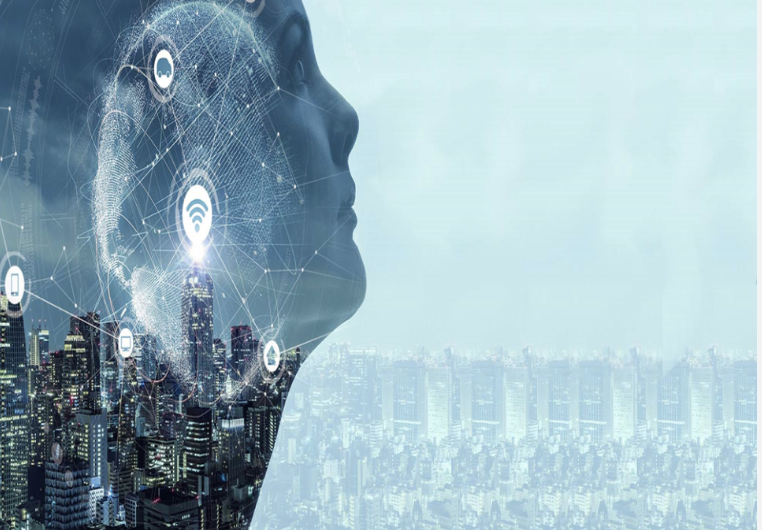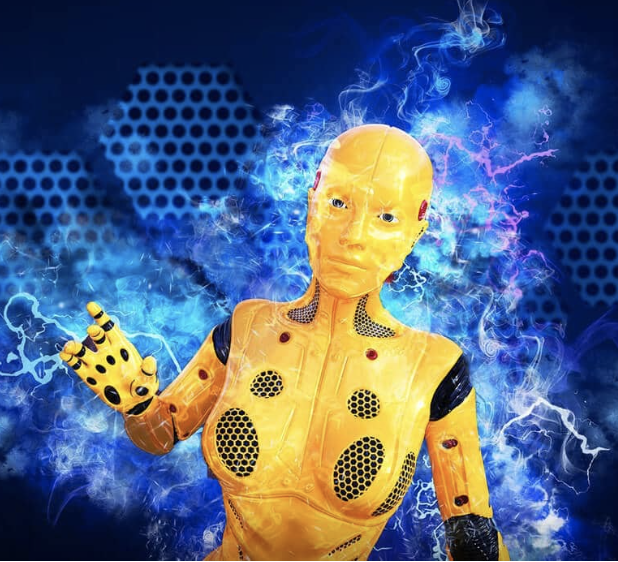From groundbreaking advancements to new applications, these 7 recent developments are shaping the future of technology.

Artificial Intelligence (AI) is one of the most significant advancements of our era. Machine Learning, in particular, is revolutionizing various processes by enabling AI software to replace tasks once performed by humans or less efficient methods. However, this shift raises concerns, especially among those who fear AI might replace human jobs or lead to a sci-fi scenario where intelligent and organized AI systems could overtake human control.
It’s clear that we’ve barely begun to explore the full potential of AI. As Steve Miranda, Oracle EVP and head of applications, remarked at a recent event, “In two years, we’ll likely be discussing a completely new set of developments in this field that none of us are even considering today.”
In other words, AI and techniques like Machine Learning are advancing rapidly. The topics we focus on today may be entirely different from those we’ll be discussing in just a few years.
AI Development Trends
Staying updated on AI’s progress is crucial, and recent trends showcase the technology’s rapid advancements:
AI Robots Learning Through Observation
AI typically “learns” either through human training or by processing data independently via Machine Learning. For instance, a bot might notice your daily routine of going to the same place at the same time and begin automatically checking traffic and weather to provide you with an estimated driving time.
A significant advancement in AI is the ability of robots to learn by observing human actions. Nvidia showcased a robot capable of performing tasks in real-world environments simply by watching how they are done, a more hands-off approach compared to traditional robot training methods.
If robots can learn by observing demonstrations, it could significantly impact workplaces and physical tasks. Future robots might be deployed in homes to watch and handle household chores based on their observations.
Additionally, a bot program called AlphaGo independently mastered advanced strategies for playing Go without any human training. This exemplifies the increasing trend of AI becoming self-sufficient and less reliant on human input.
AI Robot Caregivers Addressing a Shortage
How would you feel about receiving care from a robot nurse or having your elderly relatives cared for by robotic caregivers? Many countries are facing a looming crisis in providing adequate care for aging populations, especially as the large baby boomer generation grows older, exacerbating the shortage of human caregivers.
Artificial Intelligence is being developed to address the caregiver shortage. The Japanese government, in particular, is promoting the acceptance of technology as a substitute for human nurses and caregivers. With a projected deficit of 370,000 caregivers in Japan by 2025, developers are concentrating on practical AI applications, such as robots assisting with tasks like helping individuals out of bed or predicting when a patient might need to use the restroom.
One challenge researchers are addressing is potential resistance to receiving assistance from robots. Future research priorities include developing wearable mobility aids and technology designed to guide individuals to the restroom at predicted times.
AI Beer Brewers
Imagine crafting the perfect beer with AI’s assistance! While “perfect” may be subjective, IntelligentX uses Artificial Intelligence to incorporate customer feedback extensively. Thus, the beer is the result of a blend of customer experiences, AI, and expert brewers.
The process involves an algorithm integrated with a Facebook Messenger bot. This bot collects customer feedback and relays it to the brewers, allowing them to receive input faster than ever before. The technology enhances the efficiency of incorporating feedback into the brewing process.
The company uses QR codes on bottles to direct customers to interact with the bot, which asks them a series of questions. The algorithm then analyzes their responses to gather feedback, identify trends, and guide the brewing process. Despite the benefits of AI, beer brands must still manage their operations effectively, which is where a user-friendly brewery management tool like Ollie comes in. Automating and coordinating complex operations with precision complements the improved customer experience provided by AI.
AI-Based Cybersecurity
Cybersecurity has become increasingly crucial as technology advances, bringing new threats to sensitive data and networks. There is growing demand for AI solutions to enhance cybersecurity, with expectations that these technologies will speed up incident detection, improve response times, identify and communicate risks, and help maintain optimal situational awareness.
Palo Alto Networks has recently launched Magnifier, an AI solution for behavioral analytics that utilizes both structured and unstructured Machine Learning to enhance threat detection by modeling network behavior.
Similarly, Alphabet, Google’s parent company, has unveiled Chronicle, a cybersecurity intelligence platform designed to handle vast amounts of security data. Chronicle facilitates swift search and discovery, operating on the premise that valuable information is already within security systems but buried among countless data centers. Its advanced Machine Learning search capabilities enable faster data retrieval.
AI Diagnostics for X-Rays
Medical technology is highly conducive to AI innovation, especially in diagnostics. Traditionally, interpreting tests or imaging results depends on human expertise, which can introduce delays and the potential for errors. AI has the potential to streamline this process and reduce human-related issues.
Adopting AI for diagnostics presents significant challenges. For instance, AI systems need to be trained to accurately interpret results with human oversight, and teaching them to recognize rare pathologies is challenging due to the limited availability of images.
A recent advancement involves using Machine Learning to enhance Machine Learning itself, by generating synthetic x-rays to support AI training. According to Google scholar Shahrokh Valaee, “We are creating simulated x-rays that represent specific rare conditions and combining them with real x-rays to build a comprehensive database. This helps train neural networks to recognize these conditions in other x-rays.” This approach brings us closer to AI taking on a diagnostic role.

Artificial Intelligence Trends in App Development
App development is increasingly influenced by the latest advancements in Artificial Intelligence. Developers are leveraging cutting-edge AI tools to improve both the app development process and the user experience. Here are some key ways AI is transforming app development:
AI in Smartphone Apps
AI is increasingly being integrated into a wide array of smartphone apps aimed at everyday users. According to Gartner, by 2022, 80% of smartphones are expected to feature on-device AI capabilities, a significant rise from the current 10%. This trend presents a major opportunity for app developers across various sectors.
Here are a few examples of AI-powered apps currently in use:
- Google Assistant: Accessible by holding down the home button on an Android phone or saying, “Okay Google,” this app allows you to send messages, check appointments, play music, and perform various tasks hands-free.
- Socratic: This smart tutoring app provides math help by analyzing pictures of math problems and explaining how to solve them.
- Microsoft Pix: To help users capture and share perfect photos, Microsoft Pix takes ten frames per shutter click, uses AI to select the top three, and deletes the rest, saving storage space.
Artificial Intelligence in FinTech
The FinTech industry has experienced significant technological disruption over the past decade. Traditional financial institutions are struggling to keep pace with emerging apps, and AI is now adding to the disruption in the sector.
AI can significantly shorten processing times for financial institutions. For instance, your bank’s app might allow you to deposit a check by simply taking a photo. AI helps expedite this process by reading the check, enabling immediate fund availability without the need for human operators to manually read and process the check.
Machine Learning is also enhancing fraud detection efforts. For instance, Pixmettle is creating enterprise-grade AI tools designed to identify issues such as duplicate expenses and violations of corporate policies.
Chatbots have become a common feature in banking apps, enhancing customer service. Some apps, like Trim, are designed to integrate financial accounts with Facebook Messenger, enabling users to ask questions, make cancellations, or receive reports directly through the app.
Additionally, AI has significant potential for improving cybersecurity in FinTech. Its scalability and ability to quickly analyze large volumes of data make digital systems more secure and help customers safeguard their financial assets.
Final Thoughts
Artificial Intelligence offers significant opportunities across nearly all industries. While it has already caused considerable disruption, its impact is expected to expand even further in the coming years. If you’re curious about how AI can enhance your industry or keep your company competitive, it’s a crucial area to explore. To begin integrating AI, consider partnering with a skilled app development expert who can help tailor solutions to your specific needs.